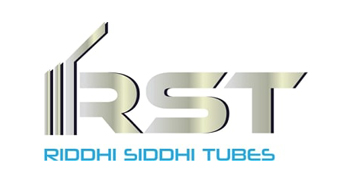Get A Quote
Get A Quote
+91

Home

Account

Get A Quote

About Us
Products
Materials
Contact Us
Connect with us
Get A Quote

Home

Account

Get A Quote

Stainless Steel 304 Seamless Instrumentation Tubes are precision-engineered tubes made from grade 304 stainless steel, a versatile and widely used austenitic stainless steel alloy. These tubes are specifically designed for instrumentation applications requiring high precision, corrosion resistance, and reliability.
The chemical composition of Stainless Steel 304 Seamless Instrumentation Tubes provides vital insights into the composition of these tubes.
| Grade | C | Mn | Si | P | S | Cr | Mo | Ni | N |
| 304 | 0.08 | 2.0 | 0.75 | 0.045 | 0.030 | 18.0-20.0 | – | 8.0-10.5 | 0.10 |
Understanding the chemical composition of these tubes is paramount for ensuring their performance and longevity in demanding heat exchange environments.
This table serves as a comprehensive guide, describing crucial characteristics of these tubes that are essential for their performance in various operational conditions.
| Grade | Tensile Strength (MPa) min | Yield Strength 0.2% Proof (MPa) min | Elongation (% in 50mm) min | Hardness | |
| Rockwell B (HR B) max | Brinell (HB) max | ||||
| 304 | 515 | 205 | 40 | 92 | 201 |
These mechanical properties reveal the suitability of these 304 Stainless Steel Seamless Instrumentation tubes for withstanding mechanical stresses and ensuring efficient heat transfer.
Stainless Steel 304 Seamless Instrumentation Tubes offer several advantages, making them popular in various industrial applications:
Stainless Steel 304 Seamless Instrumentation Tubes offer a combination of features, making them an excellent choice for various industrial and commercial applications.
Stainless Steel 304 Seamless Instrumentation Tubes find applications across various industries due to their unique properties. Some common applications include:
Stainless Steel 304 Seamless Instrumentation Tubes are essential components in various industrial applications where corrosion resistance, durability, and reliability are paramount.
Stainless Steel 304 Seamless Instrumentation Tubes are precision-engineered tubes made from grade 304 stainless steel, a versatile and widely used austenitic stainless steel alloy. These tubes are specifically designed for instrumentation applications requiring high precision, corrosion resistance, and reliability.
The chemical composition of Stainless Steel 304 Seamless Instrumentation Tubes provides vital insights into the composition of these tubes.
| Grade | C | Mn | Si | P | S | Cr | Mo | Ni | N |
| 304 | 0.08 | 2.0 | 0.75 | 0.045 | 0.030 | 18.0-20.0 | – | 8.0-10.5 | 0.10 |
Understanding the chemical composition of these tubes is paramount for ensuring their performance and longevity in demanding heat exchange environments.
This table serves as a comprehensive guide, describing crucial characteristics of these tubes that are essential for their performance in various operational conditions.
| Grade | Tensile Strength (MPa) min | Yield Strength 0.2% Proof (MPa) min | Elongation (% in 50mm) min | Hardness | |
| Rockwell B (HR B) max | Brinell (HB) max | ||||
| 304 | 515 | 205 | 40 | 92 | 201 |
These mechanical properties reveal the suitability of these 304 Stainless Steel Seamless Instrumentation tubes for withstanding mechanical stresses and ensuring efficient heat transfer.
Stainless Steel 304 Seamless Instrumentation Tubes offer several advantages, making them popular in various industrial applications:
Stainless Steel 304 Seamless Instrumentation Tubes offer a combination of features, making them an excellent choice for various industrial and commercial applications.
Stainless Steel 304 Seamless Instrumentation Tubes find applications across various industries due to their unique properties. Some common applications include:
Stainless Steel 304 Seamless Instrumentation Tubes are essential components in various industrial applications where corrosion resistance, durability, and reliability are paramount.



















-1688635827661.webp)


















No more suppliers available.
Website Banner